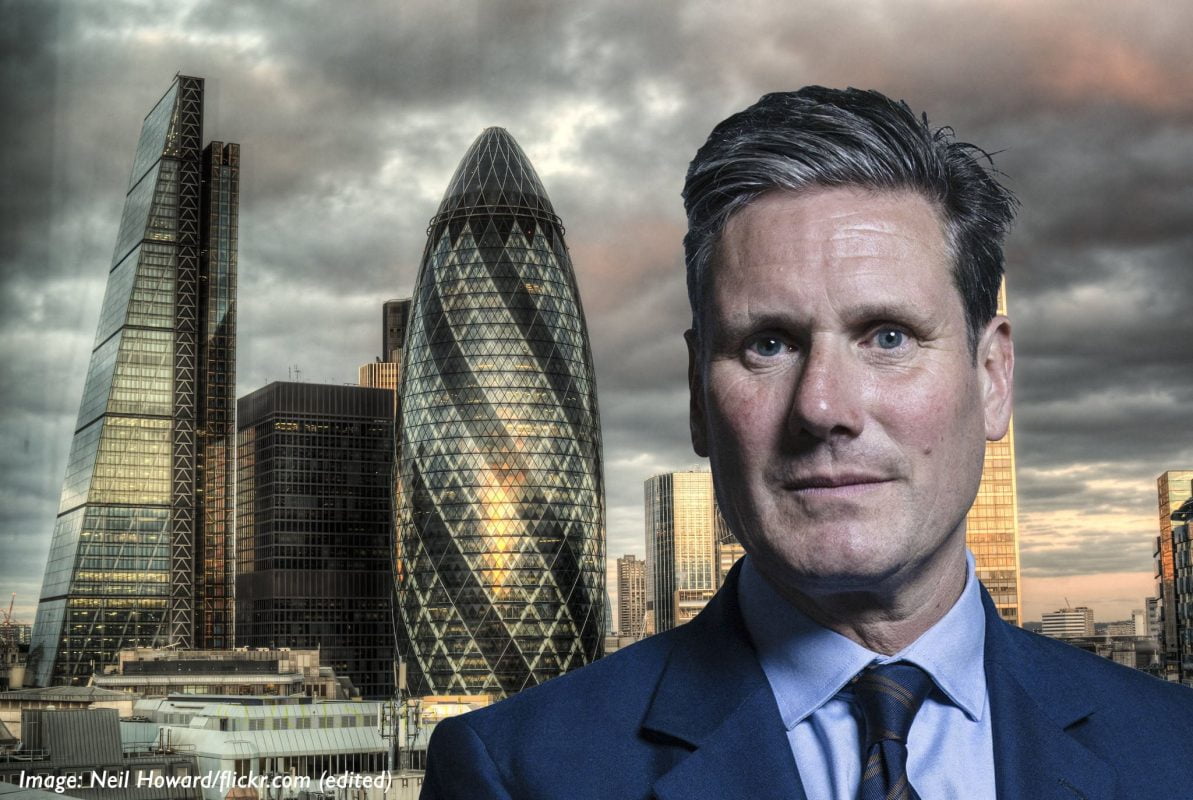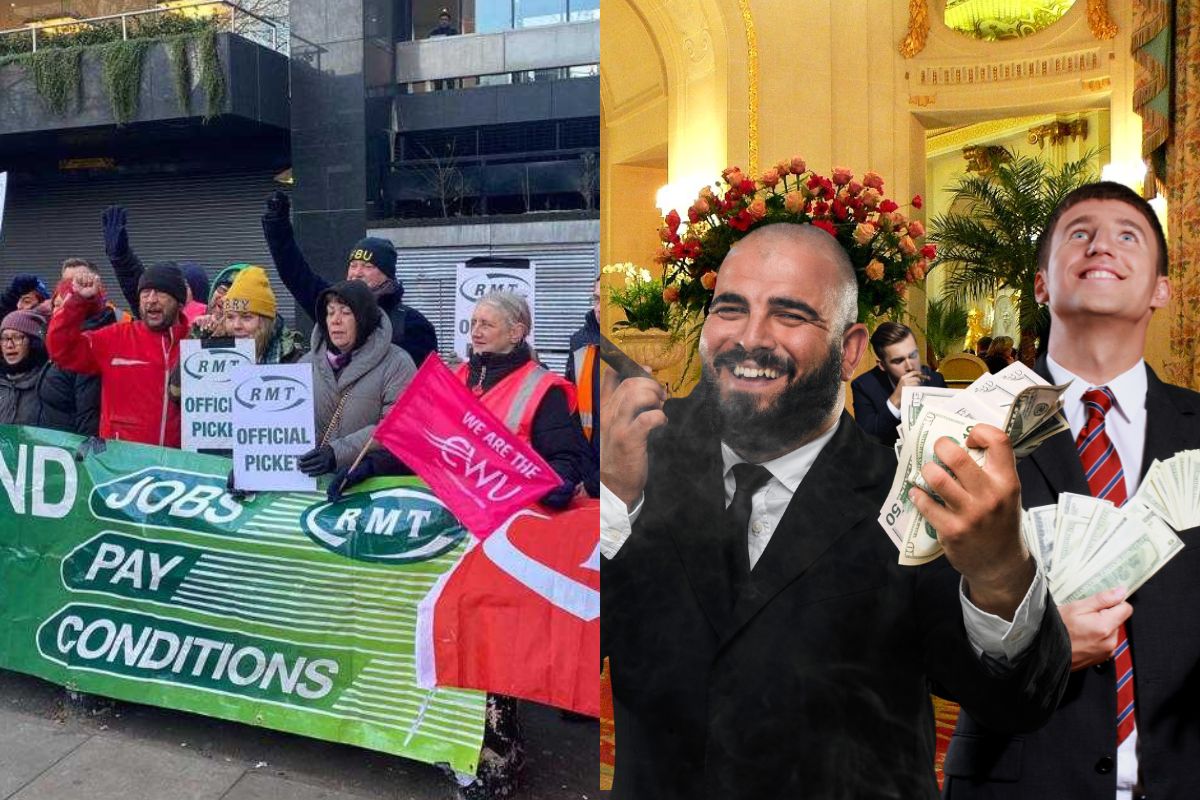Economists are predicting doom and gloom for British capitalism, with the working class paying the price. With the Tories in crisis, and Starmer’s Labour committed to austerity, workers must prepare for battle.
As we enter 2023, British capitalism is in a parlous state. Millions of workers and their families are facing a very bleak future.
While the rich continue to bask in a lifestyle of luxury, oblivious to the foodbank plight of the ‘lower orders’, the working class is being forced to endure endless pain under this crisis-ridden capitalist system.
This is not Marxist propaganda, but is even recognised by the apologists of capitalism. The Financial Times, the organ of finance capital, recently surveyed over 100 economic ‘experts’. They painted a very gloomy picture for the year ahead, at least for the working class.
“Our country is characterised by a striking level of inequality,” remarked one of these esteemed economists. “I tried to get a dinner reservation in a number of expensive London restaurants recently and struggled to find a table.”
Things are certainly getting tough out there!
Doom and gloom

The bulk of these ‘experts’, meanwhile, predicted devastating news for millions: falls in real incomes; a drop in house prices; rising unemployment, and so on.
“The UK is suffering from a perfect storm…prepare for a year-long recession,” asserted one commentator. “The coming year will feel miserable,” stated another.
Further samples included the following:
“The forecast of a seven percent cumulative decline in real household income over the next two years is unlike anything most of us have seen or remembered in this country.”
“The UK is likely to be in a deep recession through all of 2023 and likely will be the worst performing country in the G7.”
“It will feel grim for households…there is a sharp fall in real disposable income…this would be the biggest fall on record.”
“Consumer confidence is already at or close to historic lows, and that is before unemployment has started to rise…”
“It will feel bleak for many…It will be a tough year…A very sharp squeeze…UK households will be one of the hardest hit.”
“Real wage growth in 2022 fell at the fastest rate for some 50 years and, thanks to high inflation and Brexit, will continue to cause severe pain for households next year.”
“The public sector is bearing a heavy burden so far, but that may prove politically intolerable.”
“In November 2022, the UK’s GDP was 0.4 per cent lower than its pre-pandemic level…The UK appears to be the ‘sick man’ of the G7.”
“The 2023 recession will feel much worse than the economic impact of the pandemic.”
At least one economist was honest enough to admit they could not predict what was going to happen:
“It is difficult to forecast one quarter, let alone one year ahead. Whether the economy recovers will depend on the war in Ukraine, the effects of COVID on the Chinese economy, commodity prices, and other unforecastable factors.”
Although another did say: “Anything’s possible! We are in uncharted waters.”
Clashes ahead

Some hope for ‘green shoots’ to emerge eventually. But as one ‘expert’ said, they’re expecting “not green shoots, just a bit of scrubland.”
“The economic situation will get worse before it gets better…”
They estimate that the length of time that the economy stagnates will be comparable to “with luck, the 1970s. Most likely, the 1930s.”
These comments from these bourgeois strategists are very revealing. Firstly, they predict what we already know, that we are facing a deepening crisis of British capitalism. And secondly, that the working class is being asked to pay the bill.
But they also reveal the sense of pessimism in the ruling class about the future of their system. “There’s plenty of storm clouds over the UK and precious little reason for optimism,” explained one.
The working class is not prepared to take this lying down, however. There is already a strike wave developing, in many cases involving workers who have never taken action before in their lives. There are clearly big clashes ahead.
As a result, there will be “a greater level of industrial unrest in the UK than elsewhere,” explained another economist. In other words, there has been a reawakening of the class struggle, not seen on this level for forty years.
Knives out
The Tory government, despite its majority, is completely adrift. The fact that Britain has had three prime ministers in as many months reflects the political crisis embroiling the establishment.
The Tories under Rishi Sunak are trailing badly in the polls. Their ranks are split and increasingly demoralised. They know full well that the ‘Red Wall’ seats will fall, as workers there feel betrayed. ‘I voted for Boris, but I won’t ever vote for them again’ is the feeling of many.
One YouGov poll found that the public rating of the government’s handling of the NHS has fallen from minus three in May 2020 to minus 73 today. Surveys also suggest that about two-thirds of the public support strike action by nurses and ambulance workers – a direct challenge to Sunak.
The Tories will therefore continue to be wracked by instability. In these conditions of crisis, the conflicts between different Tory factions can easily bubble to the surface.
The ruling class needs a united government at the helm to carry through its attacks on the working class. But increasingly, Tory MPs are turning against one another, as the pressures of the crisis build up.
Fearful of losing their seats, and given their desperation, the most deluded Tory backbenchers have even resurrected the idea of bringing back Boris Johnson. Such speculation will no doubt multiply, but will only serve to increase the instability of the government.
Given the fall in living standards, and the increasing anger in society, the Tories look doomed at the forthcoming general election.
Establishment’s man

The ruling class are therefore preparing for a Starmer government to deal with the ‘mess’ and the rash of strikes.
Starmer is a willing servant of the establishment, as befits his knighthood title. He has informed his masters that he is prepared to do their dirty work.
As we go to press, ‘Sir’ Keir and Rachel Reeves, the shadow chancellor, are even jetting off to the Davos summit, in order to woo big business and rub shoulders with the wealthy elites – a surefire sign of whose interests they would defend if in power.
The Labour leader has committed himself to ‘fiscal responsibility’ and ‘restraint’, namely that the working class must pay for the capitalist crisis. He says there will be no ‘big government chequebook’, denying that problems can be solved with more spending.
This is a warning that a Starmer government will operate similarly to a Tory government. Spending will be cut according to the needs of capitalism. With British capitalism in crisis, this means continued austerity.
While the working class will hold its nose and vote Labour, it will not tolerate its living standards being constantly driven down. The working class has begun to flex its muscles. It will not give in to Starmer’s pleas for restraint, while the bosses are making bumper profits.
These pressures will produce a crisis Labour government, pushing the struggle to a higher level. In this process, a new – more militant – left will emerge.
Socialist programme

The task is to fight for a real socialist programme to answer the chaos of capitalism. No amount of tinkering with the system will solve this organic crisis.
Nothing short of the nationalisation of the giant monopolies, banks, and insurance companies – under workers’ control and management – will do. This will allow the resources built up by the working class to be used for the benefit of all, not a tiny handful of rich parasites. The anarchy of the market must be replaced by rational planning.
2023 opens up great challenges for the working class. The present strike wave indicates a new militancy and determination.
We, as Marxists, have to build upon this, and make conscious the unconscious desires of the working class to change society. Only in this way can we prepare for the battles ahead.
No room at the Ritz? Let them eat humble pie!






